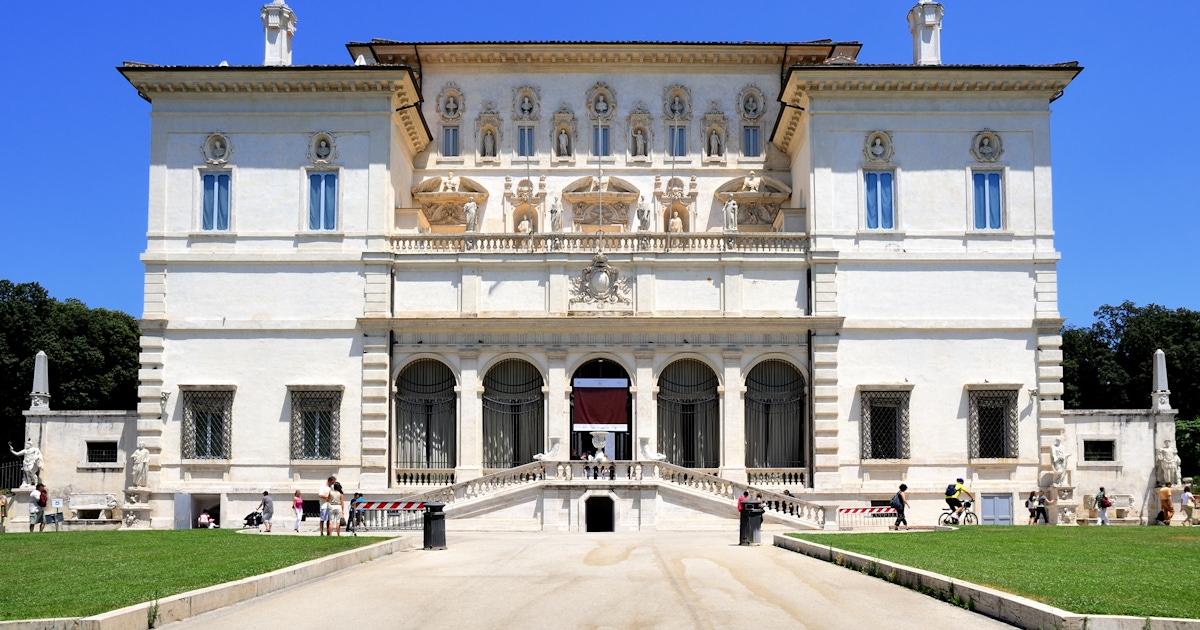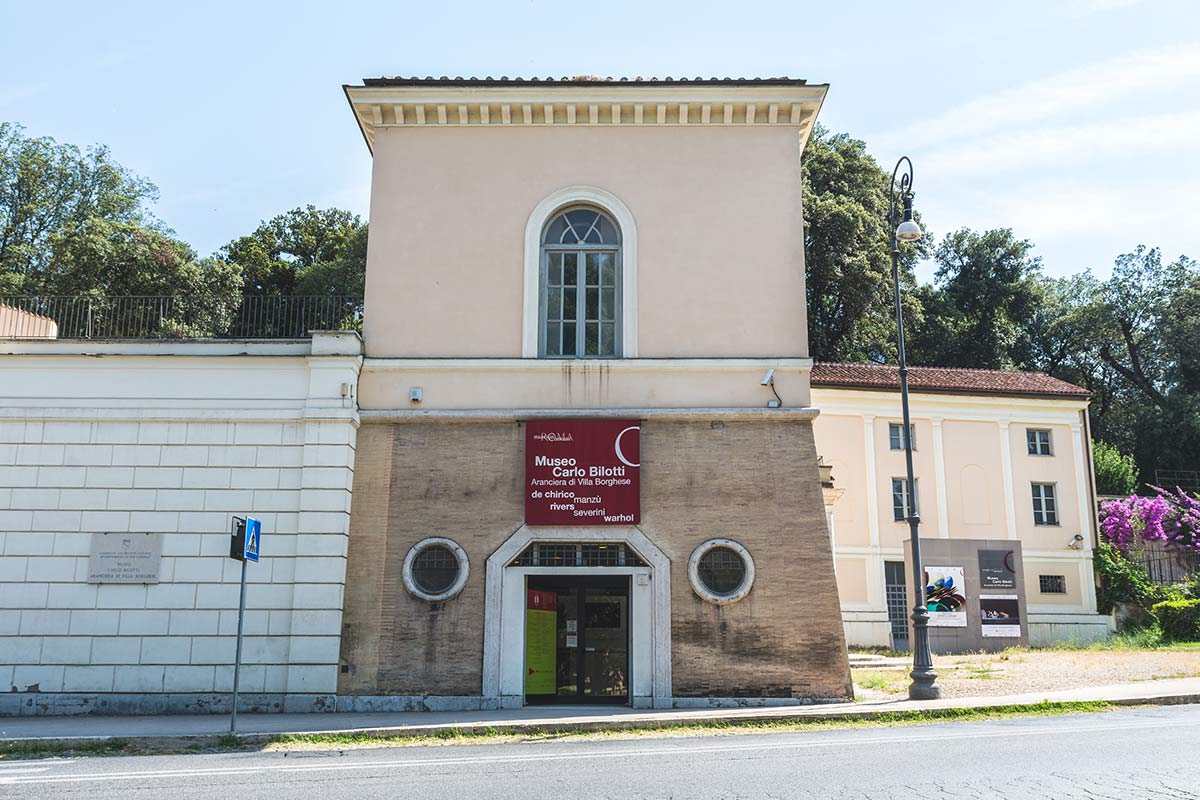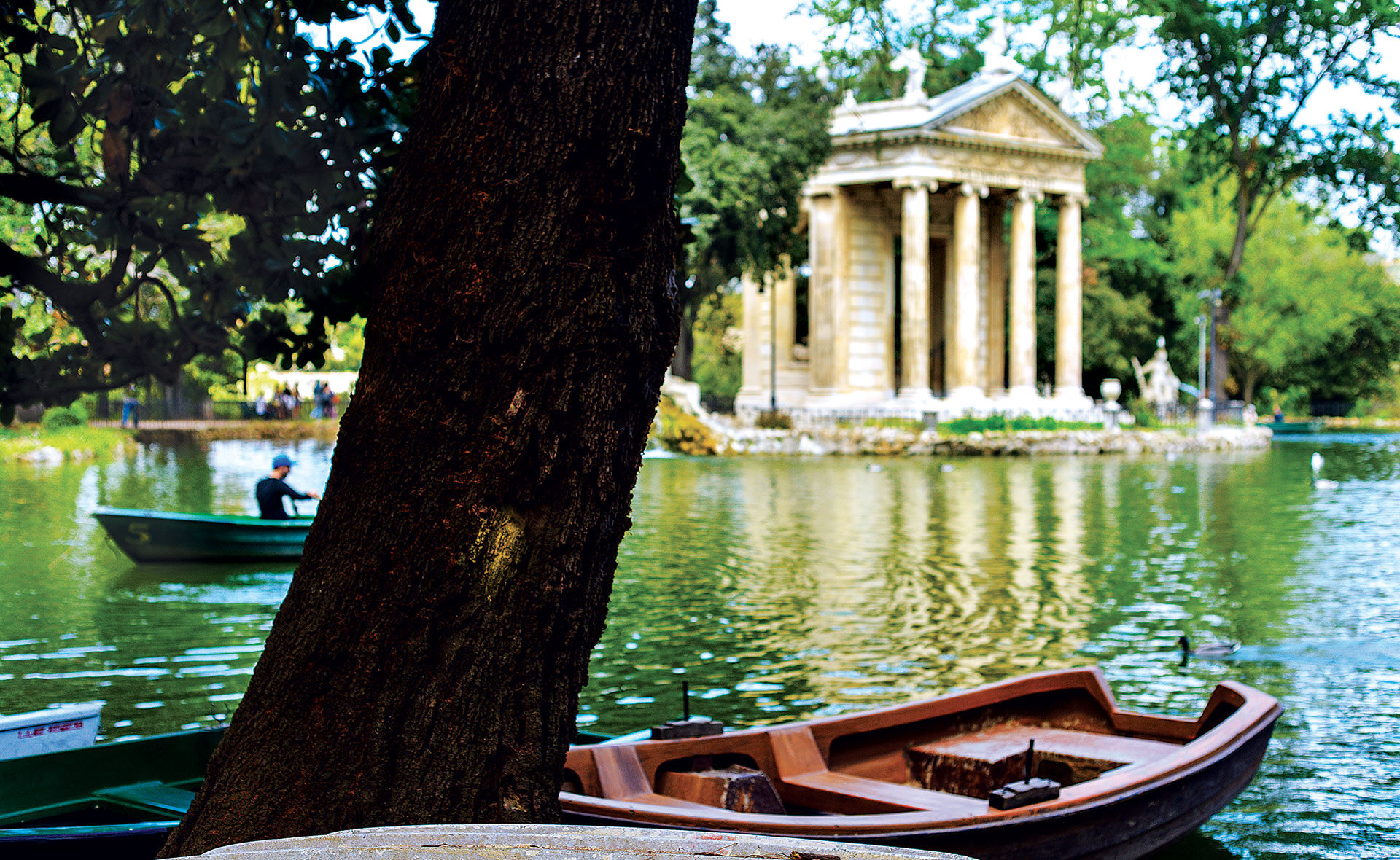



The name of the villa derives from the first residence of Cardinal Scipione Borghese, the "Casino Nobile", built at the beginning of the seventeenth century on a project by Flaminio Ponzio and Giovanni Vasanzio and transformed in the twentieth century into a museum, one of the most prestigious collections of works of art from the 16th to the 18th century, with masterpieces by artists such as Raphael, Tiziano, Caravaggio, Bernini and Canova.

Villa Borghese is home to numerous historic contemporary buildings, such as the Casino del Graziano, the Casino Giustiniani, the Uccelliera and the Meridiana with the wonderful secret gardens, restored according to the original seventeenth-century layout; houses numerous neoclassical and nineteenth-century buildings such as the Casino dell'Orologio, the Fortezzuola, the large Garden of the Lake, redesigned and built in 1786 by Antonio Asprucci, characterized by a romantic artificial islet dominated by the Temple of Aesculapius, which can also be reached by short boat excursions.

The Villa is equipped with facilities for leisure, gaming, and cultural dissemination: the Canonica Museum, home-studio of the artist Pietro Canonica, the Raphael Casino with a playroom for children, the Casina delle Rose with the Casa del Cinema, the eclectic zoo recently converted into a Biopark, the Orangery transformed into the new Carlo Bilotti Museum with works of contemporary art. Near Piazza di Siena, a large circular theater pavilion has been set up, the Globe Theater, based on the model of Elizabethan theaters, associated with Shakespearean programming.

The Villa Borghese Park occupies a large area in the heart of the city, between the stretch of the Aurelian Walls that connects Porta Pinciana to Piazzale Flaminio, and the new Salario and Pinciano districts built in the early twentieth century.

It is among the Roman villas one of the richest in artistic and landscape testimonies. Inside it contains buildings, sculptures, monuments and fountains, the work of illustrious artists of Baroque, neoclassical and eclectic art, surrounded by centuries-old trees, ponds, Italian gardens and large free spaces. It includes a large number of evergreen species, including holm oaks and plane trees (some dating back to the primitive plant), domestic pines with bicentennial specimens, firs, cedars. Among the shrubs, laurel and boxwood are common.
Due to its incredible concentration of museums and cultural institutes, the villa is called the "Museum Park".

Described in city guides of all eras, portrayed by famous artists, inspirer of famous music and intense pages of literature, Villa Borghese still reveals the splendor of the past in the unexpected views of its park.

The Villa has one of the most beautiful public parks in Rome.

Entrances: Via Aldrovandi, Via Raimondi (2 entrances), Via Pinciana (2 entrances), Piazzale San Paolo del Brasile, Piazzale Flaminio, Piazzale Cervantes, Piazzale Pablo Picasso (via di Valle Giulia)

Villa Borghese Pinciana - Museum and Gallery
Address: Piazzale Scipione Borghese, 5, 00197
Phone: 068413979
Site:
https://galleriaborghese.beniculturali.it/Location inserted by
OmoGirando